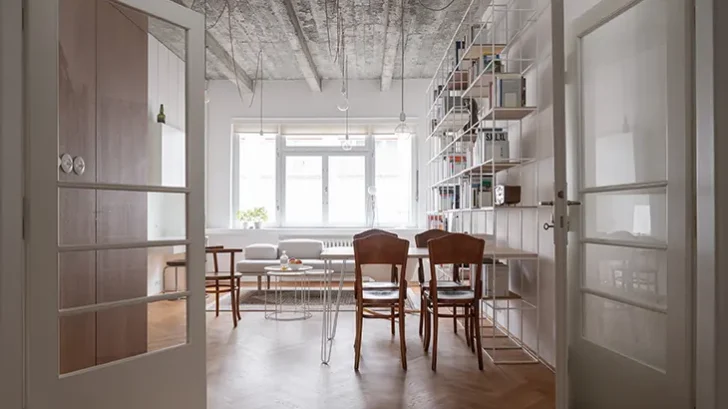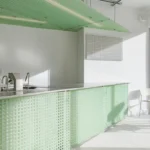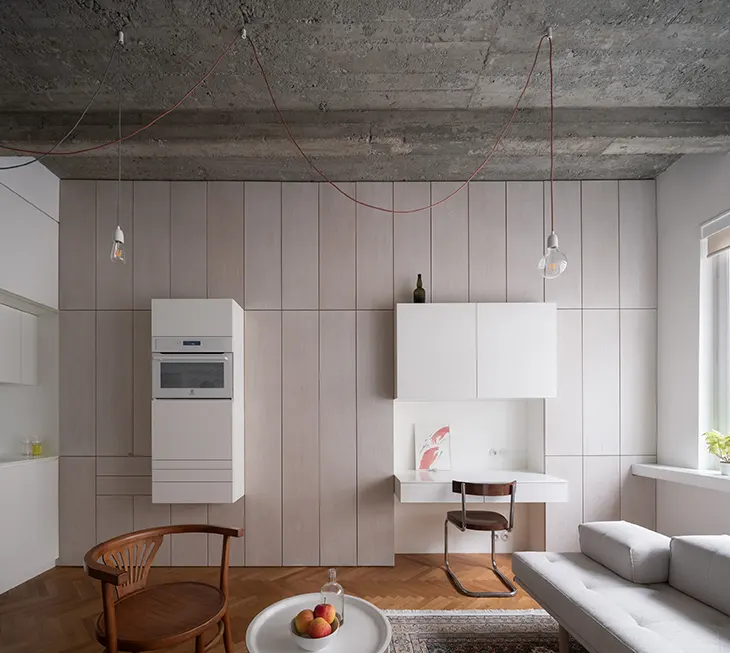
In Prague, Martin Cenek Architecture transforms a 1930s functionalist apartment into a deeply personal reflection on authorship, memory, and restraint. The project, the architect’s own home, unfolds as both a renovation and an introspective study of what it means to inhabit one’s own design. Located in a tenement building by Ladislav and Jaroslav Šimek, the apartment retains the spirit of interwar modernism while integrating a distinctly contemporary sensibility.
APARTMENTS
Balancing preservation and self-expression became the project’s defining tension. Over nearly a decade, Cenek approached the renovation as a dialogue between the existing structure’s integrity and his evolving perspective as an architect. The resulting space embraces the building’s character, its tiled façade, compact proportions, and rational plan, while introducing new layers of material precision and conceptual clarity.
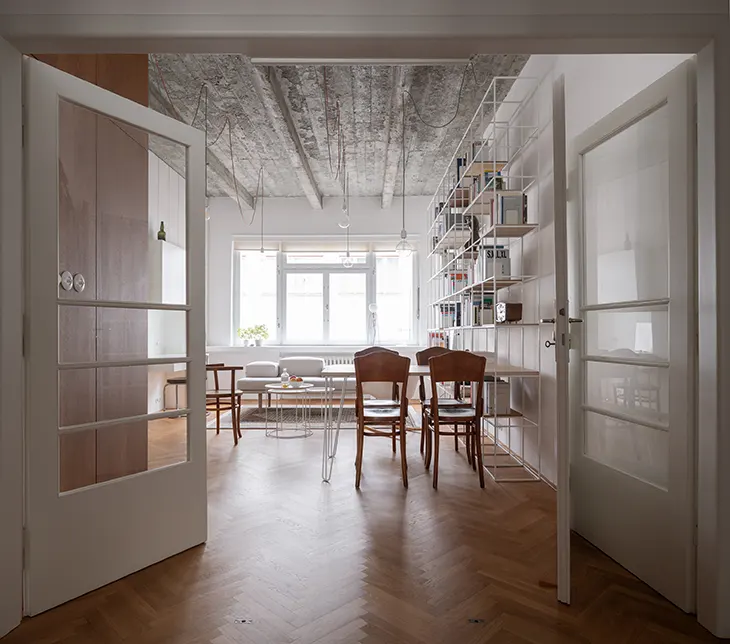
A full architectural update brought modern technical systems and fresh surfaces, yet the renovation celebrates what was already there. The reinforced concrete ceiling in the living room, once hidden beneath plaster, is now left exposed as an expressive element. Original oak parquet floors, windows, and fittings were meticulously restored, while a newly inserted furniture block replaces the old pantry and bathroom, concealing storage, a spacious bathroom, and part of the kitchen within a sleek, minimalist envelope of stained oak veneer and white lacquer.
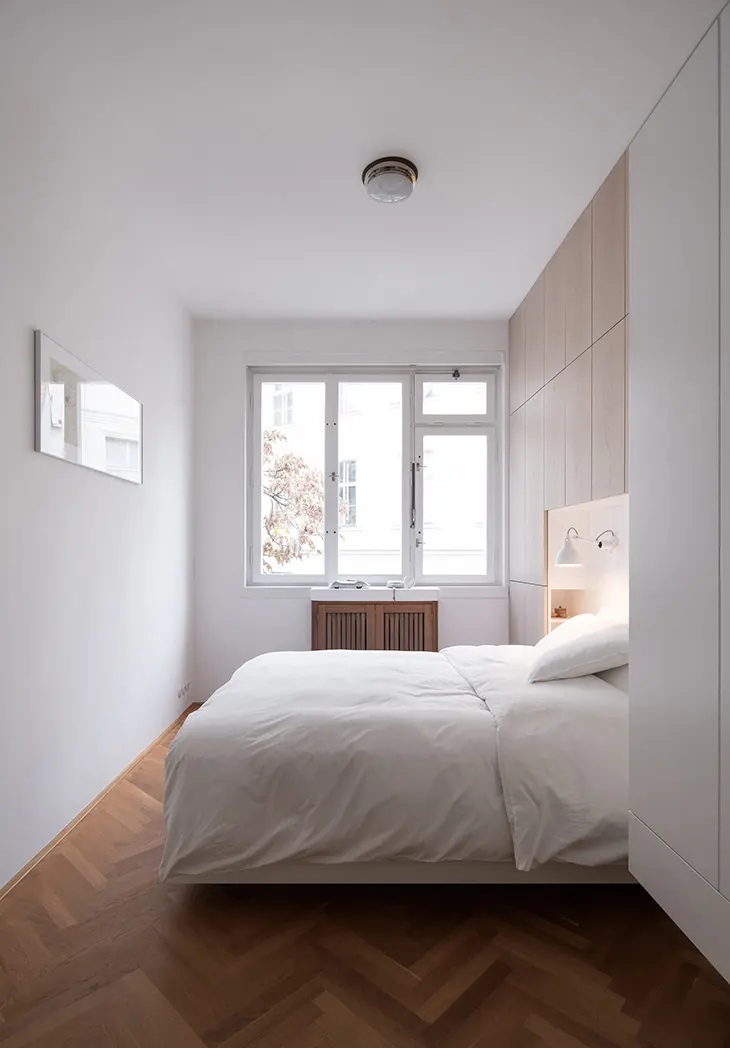
Cenek’s approach honors the craftsmanship of the 1930s while asserting a modern sense of calm. Every junction between old and new feels intentional, the interplay between patina and precision. The interiors are quietly enlivened by design classics and family heirlooms: Thonet dining chairs from his great-grandparents’ home, a 1930s Anýž table lamp, an Ez12 tubular chair by Karel Ort, and sculptures by Jaroslav Horejc. These objects carry stories that bridge generations, forming a living archive of Czech functionalist design.
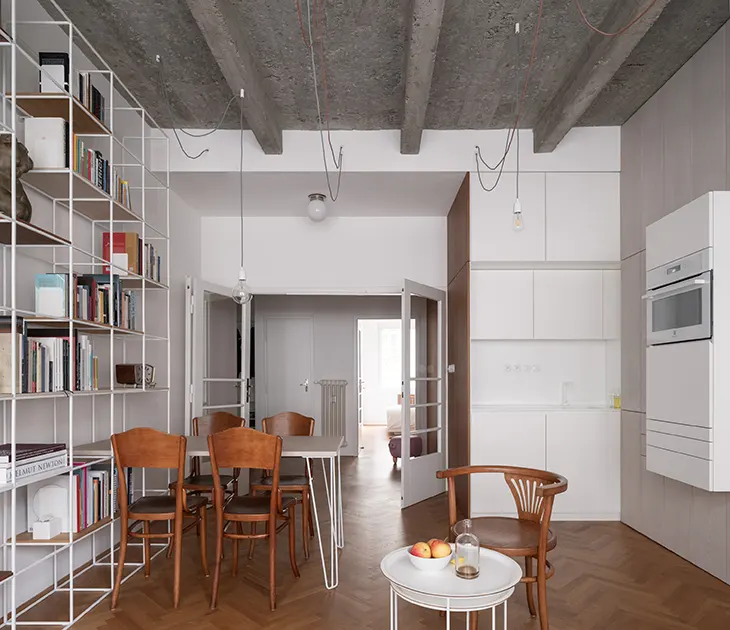
Against this historical backdrop, contemporary pieces like the Fusion sofa by Nendo introduce balance and lightness. And amid the disciplined detailing, a small note of humor interrupts the seriousness of architecture: a pink piglet stool, a gift from friends, greets visitors in the hallway, a reminder, as Cenek says, “not to take ourselves always so seriously as architects.”
